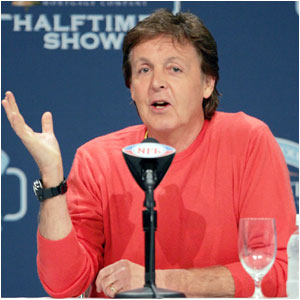A friend of mine pointed something out regarding my last post. He asked, "Wouldn’t Dylan have to allow his song to be used in a commercial?" I thought about it for a minute and checked it out on the internet. I was under the impression that after "x" number of years passed, a song became open to use by the public - wrong.
And last night as I was lying in bed, doped up on a nasty cocktail of 81mg aspirin, ibuprofen, and one Excedrin migraine, I recognized a song made popular to “our” generation in Quentin Tarantino’s film “Reservoir Dogs.” It facilitates a gruesome scene in which a man’s ear is removed with a knife while he is alive, unmedicated, and most definitely conscious. The song is “Stuck in the Middle With You,” written Joe Egan and Gerry Rafferty, and performed by Stealer’s Wheel. When released in 1973, that song reached number one on both the US and UK pop charts, and last night Olay Body Wash used it in a commercial for people with combination skin.
Cover art for the Rolling Stones' cd available only at Starbucks.

This is the latest example of the degeneration of character of our great artists. Geoff Boucher of the LA Times recently wrote an article about this same thing. He pointed out some of the latest “sellouts” in the modern era. I’m not talking about the Stealer’s Wheels of music, but about the big names, the ones that still have lots of money, lots of fame, and for some reason feel they need even more.
Boucher writes:
Bob Dylan is singing "The Times They Are A-Changin' " in a television ad for healthcare giant Kaiser Permanente these days, and who could argue? With Led Zeppelin pitching Cadillacs, the Rolling Stones strutting in an Ameriquest Mortgage ad and Paul McCartney warbling for Fidelity Investments, it's clear that the old counterculture heroes of classic rock are now firmly entrenched as the house band of corporate America.
But I must ask why. Dylan is Dylan – one of the most prolific, influential, and timeless singer-songwriters in music history. Zeppelin paved the road (poor word choice, considering…) for modern rock and roll. The Stones? Right up there with that other famous Brit band, the Beatles, and still touring, still charging $150 dollars a show, still playing only 10 songs a night, and still selling more schwag than anyone else (even at Starbucks). Paul McCartney? These last two artists are even associated with Aerosmith (the sucky version), Britney Spears, and the Super Bowl halftime show. WHY?
Paul McCartney wants more money too!

I guess money talks – thankfully, not everyone listens. John Densmore of the Doors, along with Neil Young, Bruce Springsteen, Carlos Santana, and the Eagles, have resisted the temptation to nibble at the financial carrots dangled in front of their faces. In the case of Densmore, he has instated a great disequilibrium with his former band mates, both of whom have wanted to cash in on add offers from Cadillac (reported $15 million), Apple ($4 mil.), and countless deodorant adds (wanting to use the song “Light My Fire”).
While Densmore’s reasoning sounds VERY cliché ("People lost their virginity to this music, got high for the first time to this music," Densmore said. "I've had people say kids died in Vietnam listening to this music, other people say they know someone who didn't commit suicide because of this music…. On stage, when we played these songs, they felt mysterious and magic. That's not for rent."), it’s that kind of steadfastness that protects the music’s integrity.
Robert Plant signing (his soul onto) the hood of a Cadillac.

I like some of the Rolling Stones old classics. They were written in a different era and meant something - that will never change. However, the perception of the band as a sellout will never change, either. They’ve sold their souls to corporate America, but at what cost, and at what gain?





